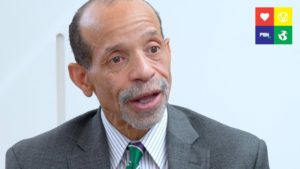It is often not enough, but it does feel good to be on the right side of history. How so? I suspect that I have lost a number of friends over the last 20+ years due to my activism and advocacy efforts. Yet despite the disappointment of losing people that I care about, knowing that I have fought the good fight on behalf of a just cause is sometimes satisfying enough in itself. There are countless people who have done more than I have, but being an activist or advocate on any level can be a lonely business. The latest example? The US has finally decided to pull out of Afghanistan. I was one of millions around the world who took to the streets in 2002-2003 to protest the US post 9/11 invasions and occupations of Iraq and Afghanistan, which according to the best estimates, have now resulted in millions of lives lost, and millions more forever altered (and trillions of dollars spent). The US government lied, and we knew they were lying, and that is why we marched again and again. I remember being at a dinner party during that time and having a friend roll his eyes and vehemently argue against anyone’s attempt to participate in anti-war protests. A family member didn’t speak to me for many months too, and once the US/Corporate media propaganda machine began doing its thing (and despite dissent being the highest form of Patriotism), it suddenly became un-American and unpatriotic to question or challenge the US government on any level.
“All truth passes through three stages: First, it is ridiculed; second, it is violently opposed; and third, it is accepted as self-evident.” – Arthur Schopenhauer
“We hear, since emancipation, much said by our modern colored leaders in commendation of race pride, race love, race effort, race superiority, race men, and the like… [But] I recognize and adopt no narrow basis for my thoughts, feelings, or modes of action. I would place myself, and I would place you, my young friends, upon grounds vastly higher and broader than any founded upon race or color… We should never forget that the ablest and most eloquent voices ever raised in behalf of the black man’s cause, were the voices of white men. Not for the race; not for color, but for man and manhood alone, they labored, fought and died… It is better to be a member of the great human family, than a member of any particular variety of the human family. In regard to men as in regard to things, the whole is more than a part. Away then with the nonsense that a man must be black to be true to the rights of black men. I put my foot upon the effort to draw lines between the white and the black…or to draw race lines anywhere in the domain of liberty.”
– Frederick Douglass
I have met some amazing people through my activism and advocacy, and although it can be difficult and depressing at times, being on the right side of history really does feel good. I strongly recommend it. 🙂
“But the question is, Did John Brown fail? He certainly did fail to get out of Harpers Ferry before being beaten down by United States soldiers; he did fail to save his own life, and to lead a liberating army into the mountains of Virginia. But he did not go to Harpers Ferry to save his life.
The true question is, Did John Brown draw his sword against slavery and thereby lose his life in vain? And to this I answer ten thousand times, No! No man fails, or can fail, who so grandly gives himself and all he has to a righteous cause. No man, who in his hour of extremest need, when on his way to meet an ignominious death, could so forget himself as to stop and kiss a little child, one of the hated race for whom he was about to die, could by any possibility fail.
Did John Brown fail? Ask Henry A. Wise in whose house less than two years after, a school for the emancipated slaves was taught.
Did John Brown fail? Ask James M. Mason, the author of the inhuman fugitive slave bill, who was cooped up in Fort Warren, as a traitor less than two years from the time that he stood over the prostrate body of John Brown.
Did John Brown fail? Ask Clement C. Vallandingham, one other of the inquisitorial party; for he too went down in the tremendous whirlpool created by the powerful hand of this bold invader. If John Brown did not end the war that ended slavery, he did at least begin the war that ended slavery. If we look over the dates, places and men for which this honor is claimed, we shall find that not Carolina, but Virginia, not Fort Sumter, but Harpers Ferry, and the arsenal, not Col. Anderson, but John Brown, began the war that ended American slavery and made this a free Republic. Until this blow was struck, the prospect for freedom was dim, shadowy and uncertain. The irrepressible conflict was one of words, votes and compromises.
When John Brown stretched forth his arm the sky was cleared. The time for compromises was gone – the armed hosts of freedom stood face to face over the chasm of a broken Union – and the clash of arms was at hand. The South staked all upon getting possession of the Federal Government, and failing to do that, drew the sword of rebellion and thus made her own, and not Brown’s, the lost cause of the century.”




